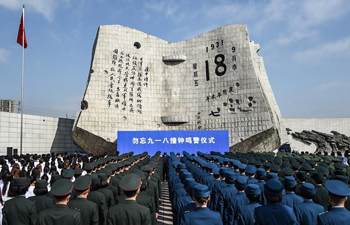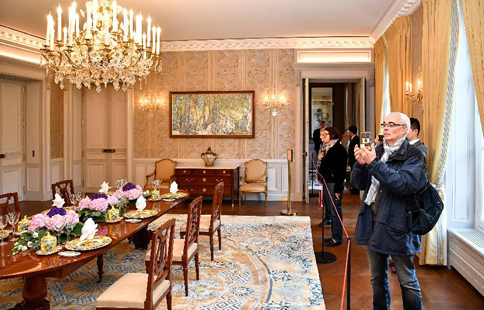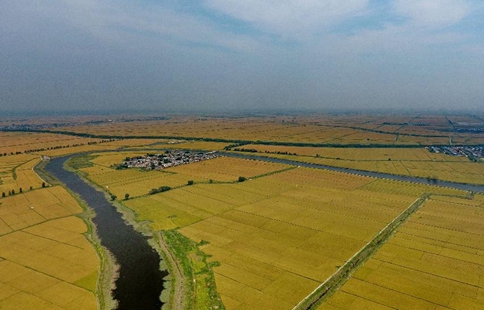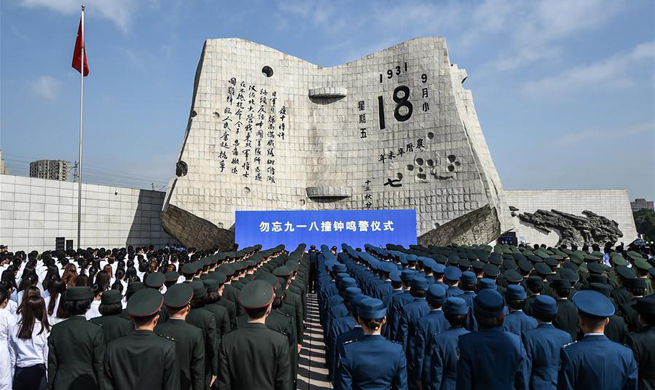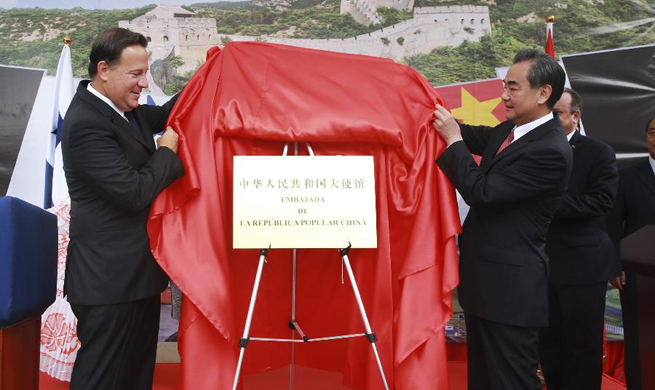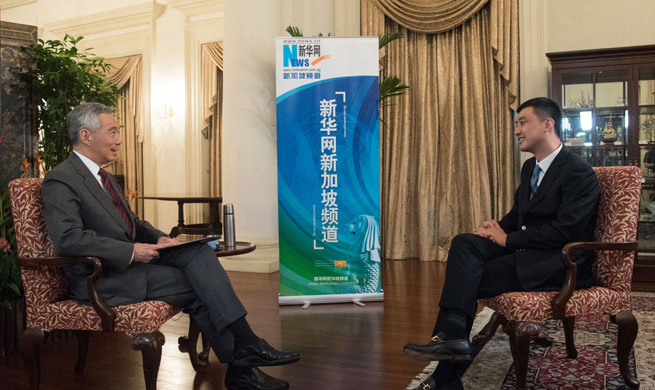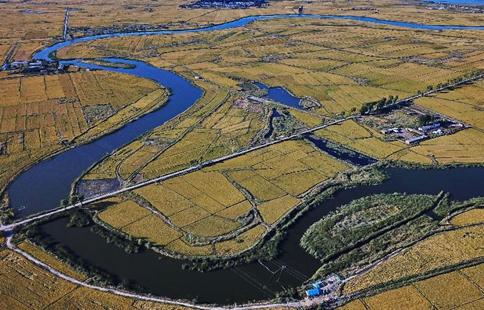RAMALLAH, Sept. 18 (Xinhua) -- Palestinian President Mahmoud Abbas is to demand U.S. President Donald Trump to declare his commitment to the two-state solution in order to achieve peace in the Middle East, a senior Palestinian official in Abbas Fatah Party said Monday in an interview with Xinhua.
Mohamed Ishtayeh, member of Fatah Central Committee, said that President Abbas' demand "will be the cornerstone on the agenda of the issues that are to be discussed during Abbas meeting with Trump in New York."
"The aim is to succeed the current efforts on resuming peace," said Ishtayeh, who is a veteran negotiator in the peace talks with Israel, expressing hope for the Trump administration to support the two-state solution in accordance to 1967 borders, otherwise "the peace track would be useless."
He said no U.S. official has talked about the establishment of a Palestinian state.
Ishtayeh said that he hopes the current U.S. administration could be coherent with the former administrations, and "work harder to end the Israeli occupation and achieve a two-state solution on the 1967 borders."
Abbas and Trump are scheduled to meet in New York on the sidelines of the 72nd session of the United Nations General Assembly. It will be their third meeting since they had met in Washington for the first time in early May and then in Bethlehem in the West bank, when Trump made his first visit to the region.
Ishtayeh said "Abbas would stress to Trump the steadfast position of interest and positive engagement to a serious and real political path with Israel, but according to the two-state solution."
He also said Abbas would stress that no talks of a course could be independent of another, adding that "it is unacceptable for a Palestinian to talk about an economic course in isolation from the political path, and it is unacceptable to talk about a security path in isolation from other tracks," he asserted.
Ishtayeh said that Abbas would reaffirm to Trump that the solution with Israel counts mainly on the Arab peace initiative launched in 2002 and includes the offer of Arab normalization with Israel provided that the latter end its occupation of Palestinian and Arab territories occupied in 1967.
The last peace talks between Israel and the Palestinians ended in March 2014 after nine months of U.S.-sponsored talks without making any progress to resolve the decades-old of conflict.
Ishtayeh, meanwhile, announced that Abbas will talk with Trump on the U.S. Congress' draft resolution against the Palestinian Authority.
"There are 16 resolutions currently being discussed in the U.S. Congress against the Palestinian Authority, including cutting off funds and imposing sanctions," he said, adding that "it is unthinkable to be partners in peace with the United States, while at the same time discussing such decisions against the Palestinian Authority."
On Abbas' speech before the UN General Assembly scheduled hours after his meeting with Trump, Ishtayeh said it would be "a comprehensive speech that includes many issues and will address the Palestinian concern and future visions to break the current impasse."
He denied the agreement to hold a meeting between Abbas and Egyptian President Abdel Fattah al-Sisi in New York in the light of Cairo-sponsored developments in the file of internal Palestinian reconciliation with Hamas movement.
"So far, there is no meeting on the agenda of President Abbas with President Sisi, but meetings with the Egyptian president are always a qualitative addition and we hope that the agenda of the two presidents will allow a meeting between them," he said.
Ishtayeh said that Hamas declaration to dissolve its administrative committee in the Gaza Strip and calling on the consensus government to function in Gaza "is very important," stressing that Fatah is committed to reconciliation with Hamas.
He called on the consensus government of Prime Minister Rami Hamdallah to "go to the Gaza Strip not tomorrow, but today, because we have to race time before many parties would work on disrupting the reconciliation."
"Reconciliation must succeed and should lead to free and fair public elections, including the West Bank, the Gaza Strip and Jerusalem, and then the Palestinian National Council should renew the blood in the Palestinian institution with all its facilities," Ishtayeh said, adding that the opportunity is ripe for reconciliation success this time.





